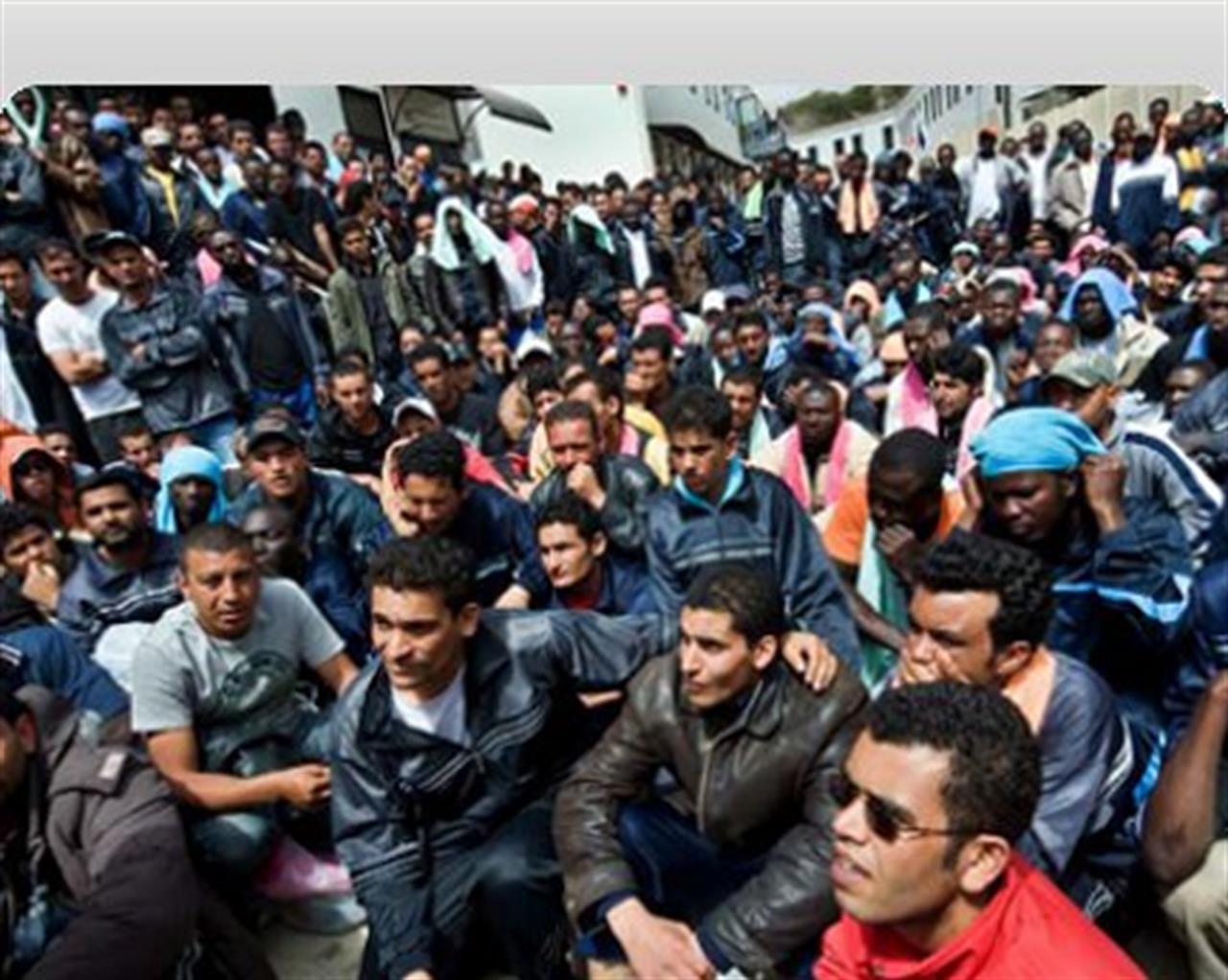Mondo
An emergency without precedent.
A day at the temporary immigration center in Lampedusa.
di Staff

By Marco Benedettelli
On average there are two thousand people but only 800 day-beds. Even offices have been transformed into dormitories. “We’re living an emergency without precedent”, explains the director Federico Miragliotta. Gates are open 24 hours a day to reassure people and prayers are led by two “authorized” Imams.
Some sleep outside on some mattresses in the shade of the maritime pines that surround the structure, others under the white walls of the 5 buildings that, built one in front of the other, give the center the an L shape. It hasn’t been easy to find a bed for everybody, because those rooms were built to accommodate 800 residents and now are crowded with one thousand people.
There were two thousand people at first but many of them have been relocated in Sicily, Calabria and Puglia. It’s difficult to organize this crowd, who spend the days playing football in the small central yard, with clothes crumpled up as posts, or sitting on the light-blue cement benches under the gazebo, where, before them, thousands of other immigrants, coming from the South of Lampedusa have spent hours and hours waiting in the last decade.
In the meantime the inhabitants of Lampedusa and the operators are looking at the ongoing events in Libya with great concern. If the island were to face a new flow of landings, not only the center, but the island itself could collapse.
“We’re living an emergency without precedent”, explains the director of the center Federico Miragliotta, “for this reason it was necessary to transform the offices of the administration and of the NGOs into dormitories.” Clothes are hanging to dry on the iron balconies of the structure, and the stairs are filled up with young men but visits to dormitories, kitchens and sanitary structures are precluded to the externals. A 30 year old Tunisian man hasn’t been able to communicate with his family for the past 3 days. His cell phone is dead and the absence of a socket cuts him out from the world. He offers to take some photos where journalists are not allowed to go and when he comes back, he shows me images of tired faces and bodies lying everywhere. In one of the photos there is a group of young men, camping in what looks like a police box, in total filth.
The structure of Contrada Imbriacola had been closed since 2009 and was re-opened in a rush. Until early February the 45 employees of Lampedusa Accoglienza, the cooperatives consortium that manages the center, received a redundancy pay. Now they have been re-employed full time and more people have been hired. There are now 90 people in the staff working 24 hours a day , they are social workers, doctors, translators, cooks and drivers. Then there are the policemen of the flying squad and Malta Order doctors.
“The decision to leave the gates open is uncommon. Everyone is free to enter and exit and this has helped to reassure people” Explains Cono Galipò, CEO of Lampedusa Accoglienza.
“Everybody’s dream is to carry on with their journey” Says Tarik Radaman, one of the two Imams who has arrived to Lampedusa.
The two airlifts organized in the morning and in the late afternoon carry on transferring the men from the island to other places. Everyone has an I.D. document with a number written on it, allocated according to the order of arrival. Departures have now become a ritual. When their time has come, the men sit down in the entry yard. Some of them stand up, hold hands and make a chain that isolates those who are leaving, in order to make the demobilization operations as smooth as possible. Then they neatly get on the bus of Lampedusa Accoglienza that takes them to the airport, where they are taken aboard police airplanes. “At first a thousand people were immediately transferred to porto Empedocle, Caltanissetta, Bari Palese, Brindisi, Foggia and Pozzallo, but now those centers are filled up and finding new destinations for the others is getting harder and harder.” Says the priest of Lampedusa, Stefano Nastasi.
Vuoi accedere all'archivio di VITA?
Con un abbonamento annuale potrai sfogliare più di 50 numeri del nostro magazine, da gennaio 2020 ad oggi: ogni numero una storia sempre attuale. Oltre a tutti i contenuti extra come le newsletter tematiche, i podcast, le infografiche e gli approfondimenti.
